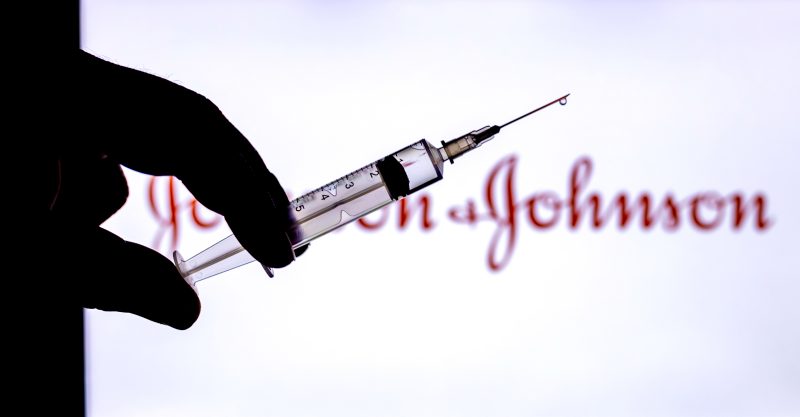FDA Says J&J COVID Vaccine ‘Safe,’ Emergency Approval Expected Within Days
A report issued today by the FDA clears the way for Emergency Use Authorization of the one-shot vaccine for people 18 and older.
The U.S. Food and Drug Administration (FDA) said today that the single-dose Johnson & Johnson (J&J) COVID vaccine is safe and effective.
The FDA’s report paves the way for the agency to grant Emergency Use Authorization (EAU) for the vaccine’s use in the U.S., according to USA TODAY.
An FDA advisory committee will meet Friday to review the data and is expected to authorize the vaccine for emergency use in individuals 18 and older within days. The vaccine maker has 4 million doses of its COVID vaccine ready to ship if the FDA grants EAU.
J&J submitted its COVID vaccine data to the FDA earlier this month. Only two months of phase 3 safety data is needed for emergency approval compared to six months of data needed for a vaccine to be fully licensed, according to CNBC.
According to the FDA’s report, J&J’s vaccine has an overall efficacy rating of 66% for preventing “moderate to severe COVID-19,” but was even less effective against the new South Africa variant. The vaccine was only 42.3% effective about a month after getting the shot in people 60 or older who had comorbidities, reported CNBC.
The Pfizer and Moderna vaccines currently require two doses and are 94% and 95% effective, though some scientists have questioned the methodology used to arrive at those numbers.
The FDA said J&J’s shot could speed up vaccinations and is “safe to use” while the Centers for Disease Control and Prevention noted the flu vaccine in a good year is only 60% effective, yet is still recommended bi-yearly.
Experts say the J&J COVID vaccine can’t be compared to Pfizer or Moderna’s vaccines because they have been tested differently and it “wouldn’t be surprising if one dose turns out to be a little weaker than two,” according to the Chicago Tribune. Policymakers will decide if less efficacy is an acceptable trade-off if it means more people could get vaccinated faster.
European regulators and the World Health Organization are also considering J&J’s vaccine, according to a CBS report. Considering J&J’s relationship with the Bill & Melinda Gates Foundation and the Global Alliance for Vaccines and Immunizations, and the U.S. government’s $1 billion deal with J&J to buy 100 million doses of its experimental vaccine, emergency approval is likely.
According to the FDA analysis, J&J’s vaccine consists of a “replication-incompetent recombinant adenovirus type 26, a SARS-CoV-2 spike protein, and contains the following inactive ingredients: citric acid monohydrate, trisodium citrate dihydrate, ethanol, 2-hydroxypropyl-β-cyclodextrin (HBCD), polysorbate 80, sodium chloride, sodium hydroxide, and hydrochloric acid. The adenovirus is also grown in the PER.C6® aborted fetal cell line.
Although the FDA identified no safety concerns with J&J’s COVID vaccine, The Defender reported in October 2020 that the company temporarily paused phase 3 clinical trials of its COVID-19 vaccine after one participant experienced an “unexplained illness” believed to be connected to the experimental vaccine.
At the Oct. 30 Advisory Committee on Immunization Practices (ACIP) meeting, Johnson & Johnson’s Dr. Jerald Sadoff was pressed by no fewer than six ACIP members to reveal the illness, but refused, citing confidentiality.
Polysorbate 80, an ingredient in J&J’s vaccine, has also been suspected as an underlying cause of anaphylactic COVID vaccine adverse reactions. Studies show that polysorbate 80 disrupts the normally protective blood-brain barrier.
J&J will face no liability as it brings it’s COVID vaccine to market as the Public Readiness and Emergency Preparedness Act implemented in March 2020 indemnified vaccine manufacturers from harmful effects caused by their products post-approval.

